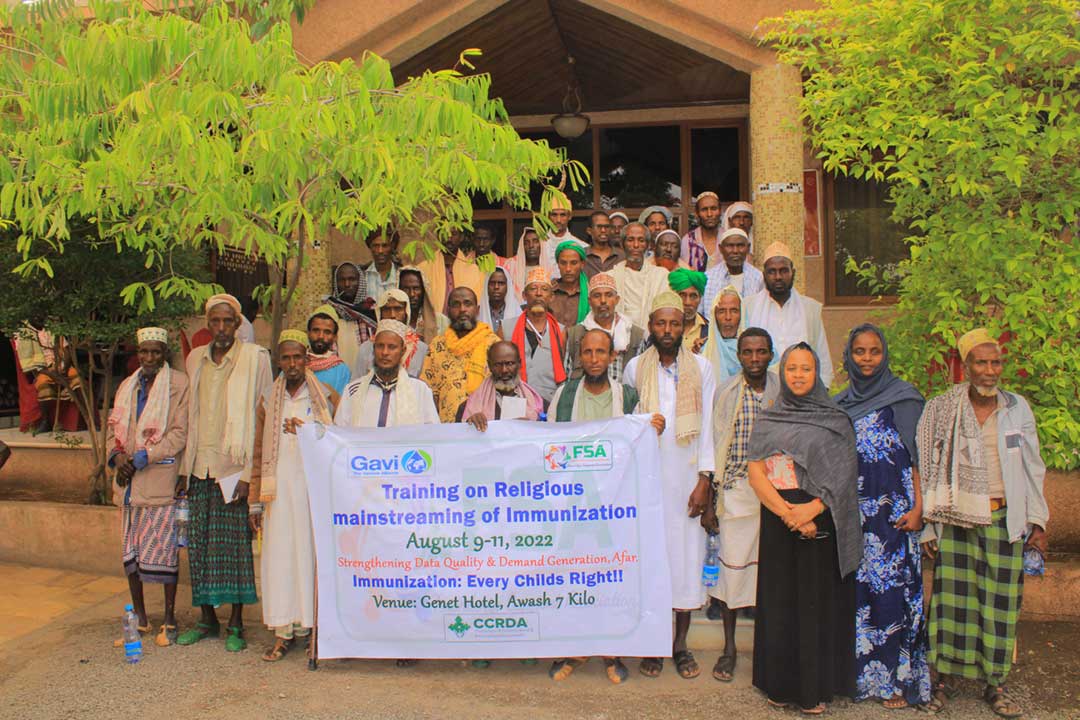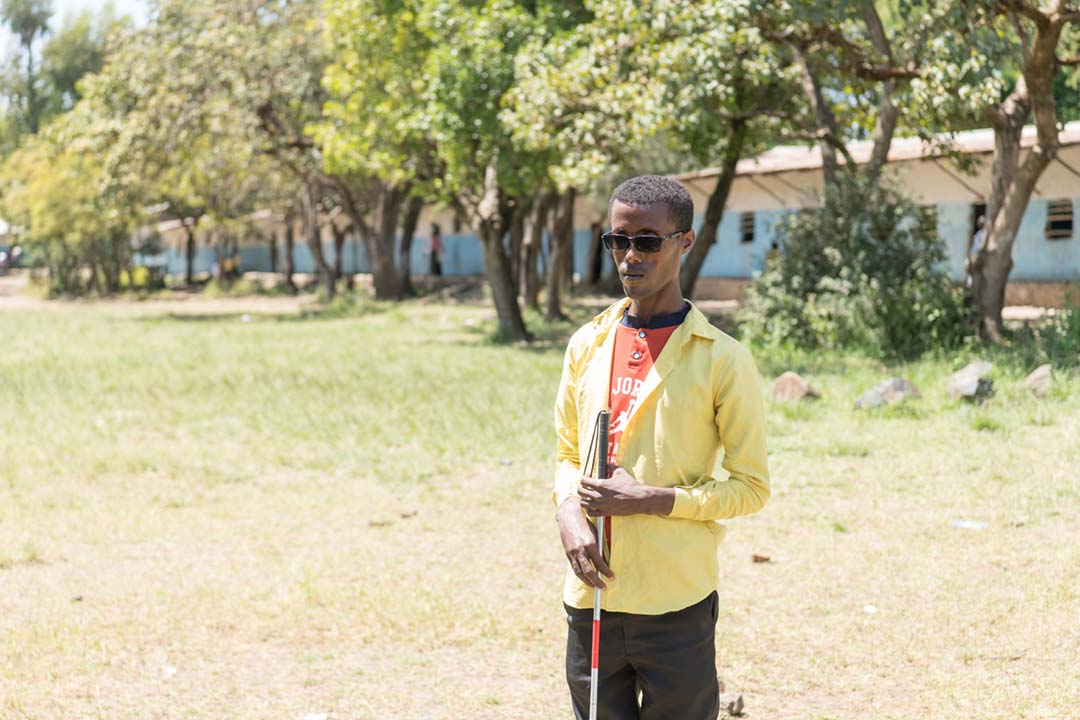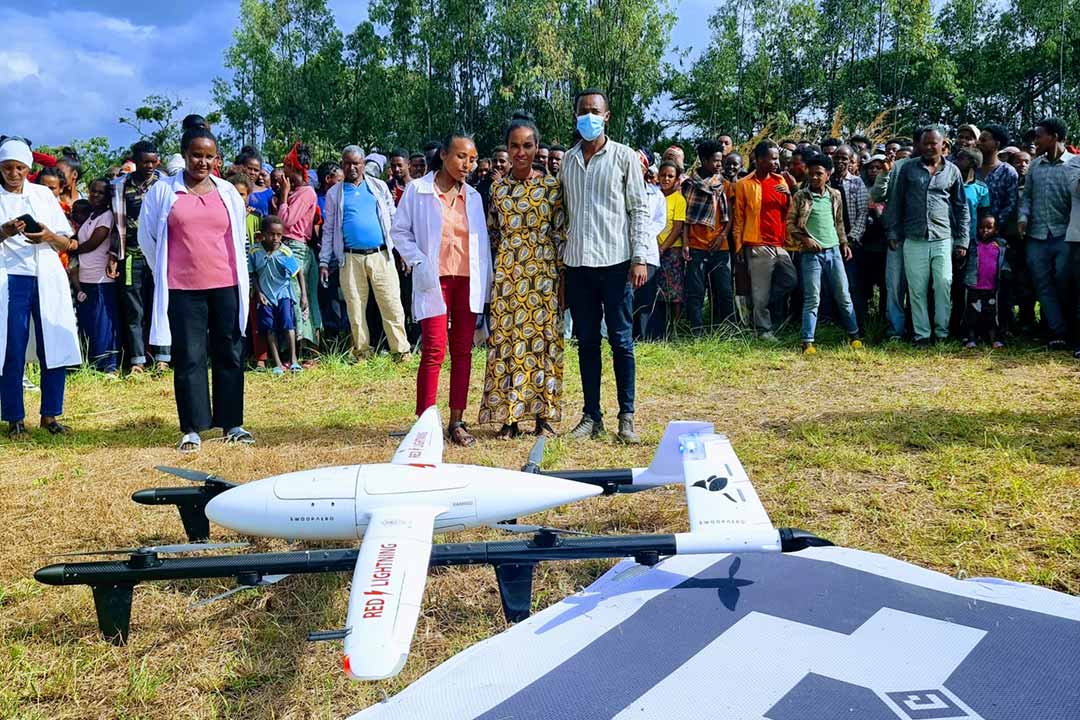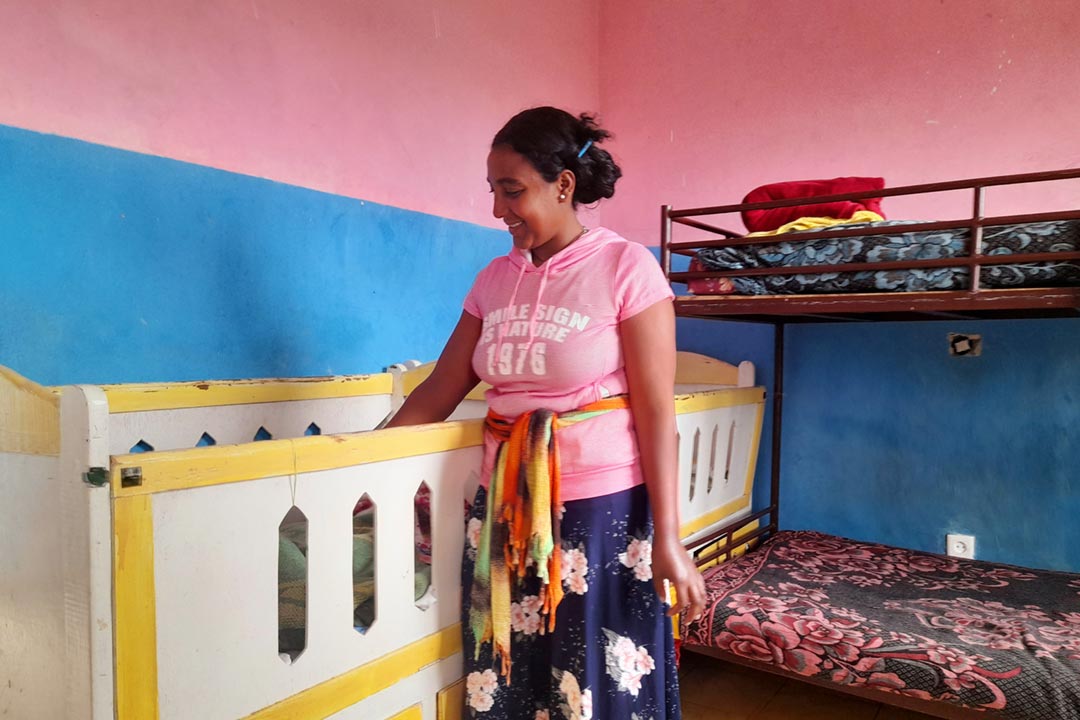Oral cholera vaccines arrive to help quell outbreak in Ethiopia
There have been 2,500 suspected cases and 54 deaths so far – but with millions more doses of vaccine expected imminently, there’s hope of an end to the cholera epidemic for Oromia and Somali region.
- 5 April 2023
- 5 min read
- by Solomon Yimer
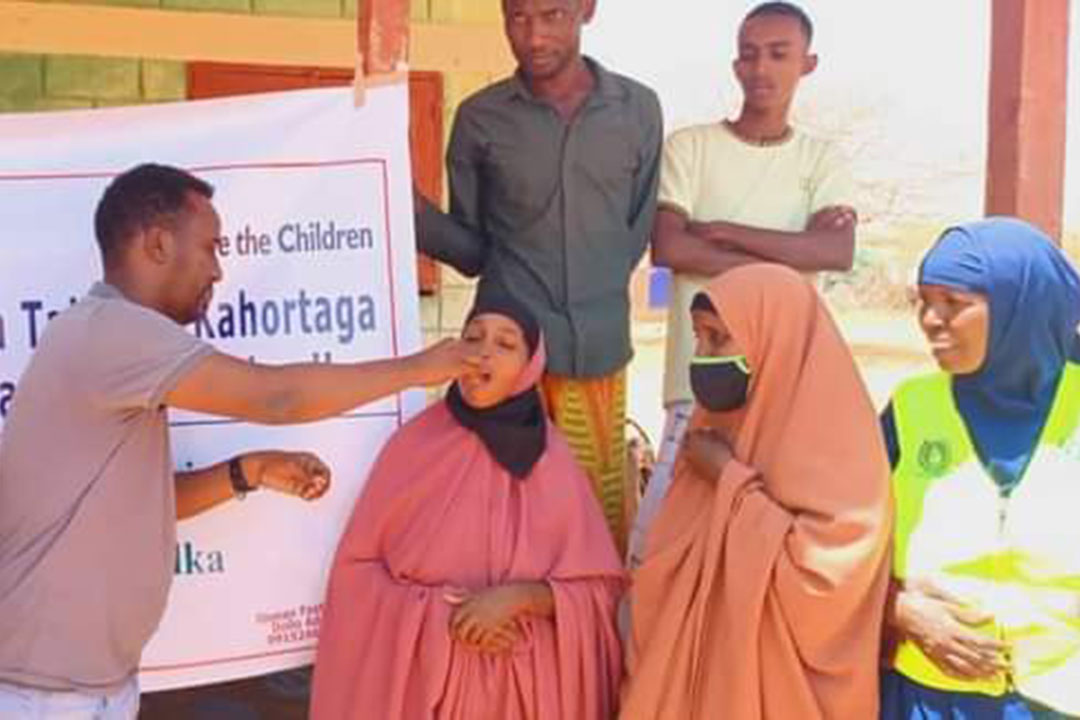
When a cholera outbreak was reported in Dolo Ado district of Liben Zone, in Ethiopia's Somali region this past February, Amina Mohammed, 35, "panicked".
"Most of my people got sick in my neighbourhood. I was too much worried about the health of my kids, and I was always focused on our hygiene and sanitation," she said.
Many people here had lost loved ones to cholera in the past. Droughts have limited access to clean water, triggering outbreaks of the explosively epidemic diarrhoeal disease.
"Most of my people got sick in my neighborhood. I was too much worried about the health of my kids."
– Amina Mohammed, mother of two
According to the Ethiopian Public Health Institute (EPHI), well over a million people are at high risk of cholera disease in south-eastern Ethiopia. The current outbreak is affecting 14 woredas in Oromia and three in Somali region, with almost 2,500 suspected cases reported so far. Fifty-four people have died.
Caused by eating or drinking food or water contaminated with the bacterium Vibrio cholerae, cholera moves fast. It can take between just 12 hours and five days for a person to show symptoms – acute watery diarrhoea leading to extreme dehydration – after exposure.
Untreated, patients can die in hours. But oral rehydration solutions are a game-changing treatment, and outbreak response vaccination protects the at-risk, helping to douse outbreaks and saving potentially thousands of lives.
On 13 January 2023, vaccination - using oral cholera vaccines from the Gavi-supported global stockpile - kicked off in Somali and Oromia Regions. When Mohammed learned in February that oral cholera vaccines (OCV) were rolling out in Dolo Ado, she eagerly took her two children, aged five and seven, to the local health clinic to get vaccinated.
"I am very glad my children receive vaccinations, because it would protect them from any cholera,' she said. She now encourages other parents in her community to get their children vaccinated against cholera as well. Between 14 andand 26 February 2023, health workers vaccinated some 24,500 people aged one year and above, in three kebeles in Dolo Ado and Bekolmayo districts of Liben Zone, officials report.
Have you read?
Vaccinators use a mixed approach of vaccinating patients in health centres, and by door-to-door visits. "As the outbreak in our region was first reported in bordering areas with Kenya, and received an outbreak alert, we began to deploy teams, and immediately started to give OCV in the bordering kebeles to Kenya, which the outbreak is transmitted from," said Bashir Yusuf, public health emergency management (PHEM) coordinator at the Somali region's health bureau.
In an effort to give a coordinated response to the outbreak, Yusuf said the region set up various response teams composed of regional and local health workers, partners, community representatives, and religious leaders from the districts where cases are reported. "Every day the committee gathers for a follow-up meeting and evaluates daily activities in terms of prevention and treatment of the disease," he added.
"As the community has seen the impact of the vaccination – from experience in the previous outbreaks – there has been high demand of the OCV since the outbreak in the region," Yusuf explained. Three of the currently affected woredas have seen vaccine campaigns before – though 88% of the cases reported in those woredas were in unvaccinated people.
"But due to limited vaccine doses we couldn't satisfy all the needs. We are requesting additional doses from EPHI and we will keep administering as soon as we receive the vaccines."
Last week, the International Coordinating Group for cholera vaccines (ICG), the decision-making body in charge of the Gavi-supported Global OCV Stockpile, approved sending 1,910,416 doses of the vaccine to Ethiopia, to protect 1,910,416 people aged over one in the Oromia and Somali regions with a life-saving single dose. Those vaccines are expected to arrive imminently in Ethiopia to support the outbreak response.
"As the community has seen the impact of the vaccination — from experience in the previous outbreaks — there has been high demand of the OCV since the outbreak in the region."
– Bashir Yusuf, public health emergency management coordinator, Somali region
In the meantime, risk of further spread remains. Bashi explained that the outbreak has been reported in areas around refugee and IDP camps, necessitating preventive vaccination to protect those vulnerable communities. More cases are being reported in a border town on an arterial road that runs through to the major population centres of Nairobi and Mombasa in Kenya.
Still, there are signs of hope. According to health officials in the region, the OCV campaign has already reduced disease transmission in the vaccinated communities.
"Though the vaccination effort possibly prevented large epidemics and saved many lives, we are still working on enhancing cholera surveillance in high-risk areas at health facilities and community levels," Yusuf said.
"As the rainy season is approaching, we are strengthening our cholera prevention activities in vulnerable areas in the region," he added. "Health workers in different levels are still working on awareness creation campaigns on the prevention and treatment of the disease in cholera vulnerable areas in the region."
